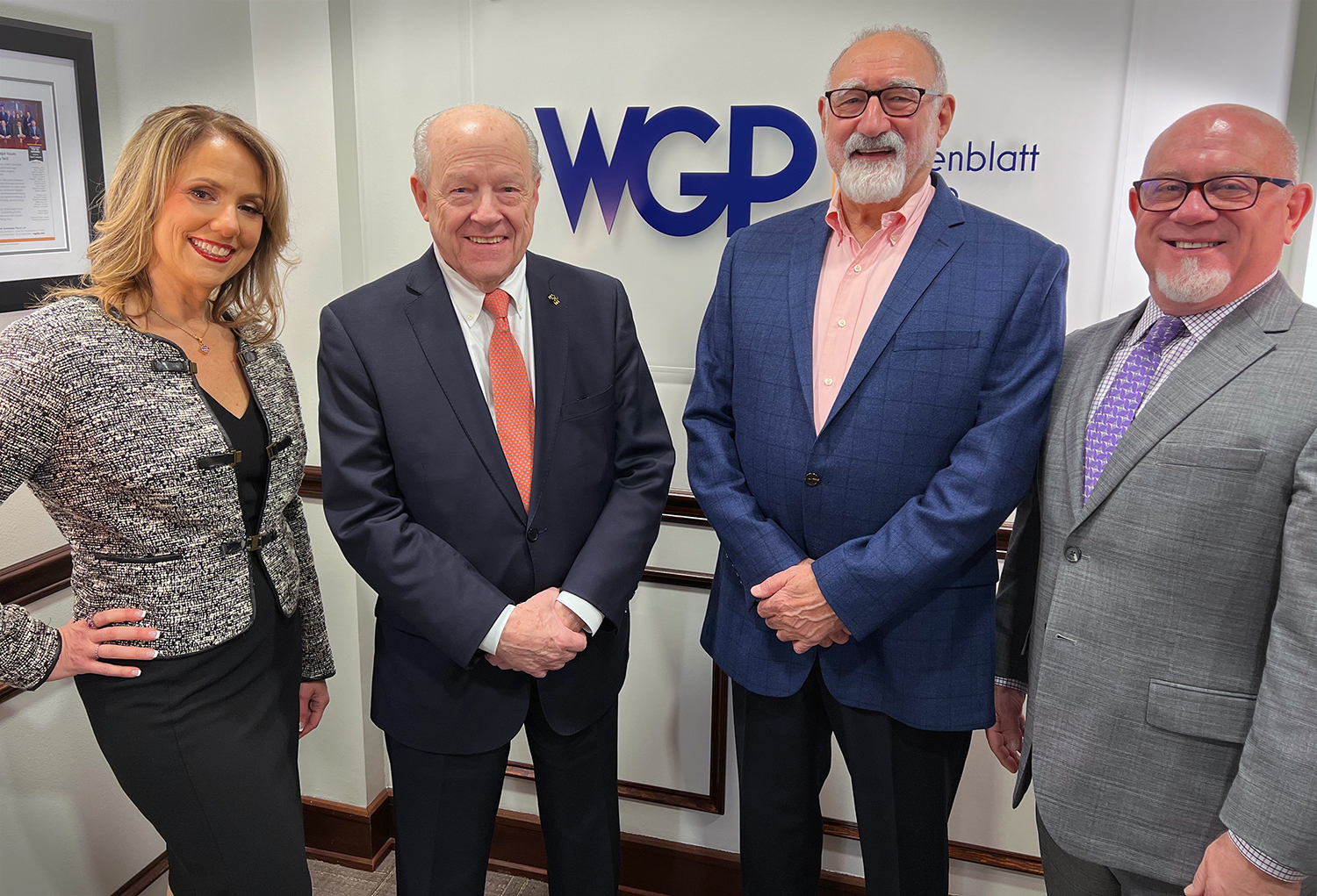By: devweb
By Peter F. Vaira, for the July 16, 2019 edition of The Legal Intelligencer newspaper
Organized crime has played a major role in the history of law enforcement of this country since the 1930s. It has been the subject of numerous legislative acts by congress, enforcement programs by presidents of the United States and federal law enforcement agencies. The effort was aided by the occurrence of several significant events as I will describe below. The government’s effort required skilled prosecutors, the educated use of the investigative power of the grand jury, dedicated U.S. senators who passed original legislation, and skilled investigators who knew how to develop informants and cooperating witnesses. For many reasons that combination of talent and energy has severely dwindled and the investigative effort against organized crime is no longer a national program.
Organized crime in the United States is largely the operation of a criminal organization known as La Cosa Nostra (LCN). It is in the business of crime for profit. Although there are many other criminal organizations operating in the United States and other parts of the world, none are as organized and operate with the discipline as the LCN.
I would select the actual beginning of the government’s efforts against organized crime with the creation of what became known as the McClellan Committee of the U.S. Senate in 1957. That committee formed the Permanent Subcommittee on Investigations with Sen. John McClellan as chairman. Sen. John Kennedy was a member of the committee; his brother, Robert Kennedy, became chief counsel. The committee exposed the nationwide operation of organized crime and its influence in labor unions. The committee drafted and successfully passed the Labor Management Reporting and Disclosure Act in 1959, which put labor unions under federal jurisdiction and exposed illegal practices that became known as labor racketeering. This was a milestone in the law enforcement effort against organized crime.
The next significant event was the creation of the organized crime and racketeering section in the Criminal Division of the Department of Justice in the Kennedy administration. When John Kennedy became president, he appointed his brother as attorney general. Robert Kennedy soon discovered that the Justice Department in Washington, D.C., had very few attorneys with any familiarity with organized crime. The U.S. attorney’s offices in the field were no better. At that time, all assistant U.S. attorneys were political appointments who were generally replaced, along with the U.S. attorney, when a new political administration took office Attorney General Kennedy found he had very few experienced prosecutors in Main Justice in Washington or in the field. At that time, the FBI had little experience in dealing with organized crime as J. Edgar Hoover, the FBI director, was not enamored of pursuing organized crime cases because they required too much investigative work, the use of informants, and did not produce the numbers of arrests and convictions that he wanted.
In response to this situation, Attorney General Kennedy formed the organized crime and racketeering section and began hiring experienced attorneys for service in that section. Kennedy sent these attorneys, designated as special attorneys, to certain U.S. attorney’s offices where they received little assistance from the individual assistant U.S. attorneys or the FBI. What they did have was the investigative power of the federal grand jury. Until that time the investigative power of the federal grand jury was little used by the federal prosecutors. Grand juries met to hear agents read their investigative reports and then vote on returning an indictment. The law has always been that the federal prosecutor does not need any probable cause to issue a grand jury subpoena for records or for personal appearance of individuals. The special attorneys began issuing subpoenas for organized crime figures to appear before the grand jury, or subpoenas for persons employed in companies they controlled, and subpoenas for the records of those companies. There were few grounds to object to such subpoenas. Therein lay the key to combating organized crime. The use of the grand jury is an investigative power that exists in no other civilized county. The special attorneys from the organized crime section took advantage of this power.
This investigative effort led to the formal creation of the organized crime strike forces, which were groups of federal trial attorneys sent to key cities where organized crime groups were located. Buffalo, New York, Chicago, New Orleans, Boston and New York City were among the first strike forces. The total later came to over 10 key offices across the country. This concept continued in the Justice Departments of the administrations of Presidents Lyndon B. Johnson, Richard Nixon, Gerald Ford, Jimmy Carter and Ronald Reagan. Although the operation of the strike forces was sometimes hampered by bureaucratic conflicts between the politically appointed U.S. attorneys and the administrative leaders in Justice Department in Washington, the strike forces broke major organized crime strongholds, including control of the New York waterfront and control of the Las Vegas casinos. There were many similar results in other parts of the country. As part of my career in the Department of Justice, I was fortunate to head the Philadelphia and the Chicago strike forces.
Two important statutes were passed by Congress, which gave prosecutors enormous investigative power. The first was the enactment of the federal electronic surveillance act, which permitted law enforcement to install secret wire taps on the phones and bugging devices in the homes or offices of persons suspected of criminal activity, after getting formal approval from a federal judge. The second was the enactment of the federal immunity statute. This statute permitted prosecutors to petition a court to order a person to testify over his assertion of the protection of the right of self-incrimination in a grand jury, in return for immunity from prosecution of criminal acts disclosed in the person’s testimony. This included the power of the court to incarcerate the person if he continued to refuse to testify. Both these statutes were upheld by the courts.
A major development was the use of the federal mail fraud statute, which permitted prosecutors to charge violations of local and state criminal acts that were not covered by federal criminal statutes. The mail fraud statute was originally passed to prevent fraud in the sale of goods bought or sent through the mail. The statute under the interpretation of the federal prosecutors permitted federal prosecution of conduct, which was illegal under local law, if the U.S. mail was used in some tangential manner, such as sending a message or a receipt for a transaction. The use of the mail fraud statute allowed federal prosecutors to bring criminal charges involving bribery or conspiracy against local officials and organized crime figures who otherwise would be beyond the reach of federal law. Another statute commonly called the RICO statute enabled federal prosecutors to use a combination of federal statutes to create a new federal crime, which also permitted forfeiture of property and funds gained by the illegal activity.
These federal statutes caused J. Edgar Hoover to assign his agents to become actively involved in the investigative process. FBI agents began to investigate actions that were prohibited by federal statutes. Organized crime activity usually does not have persons voluntarily reporting such violations to law enforcement. There are few willing witnesses. Agents needed to develop confidential informants. These are persons who were involved in the criminal activities, or persons who were privy to such actions, but would never publicly come forward with information for fear of their lives, or fear of damage to their professional reputations. Many of the persons involved in criminal activity, when confronted with their incriminating actions, plead guilty and testified against their organized crime co-conspirators. This was an ongoing process in the federal law enforcement effort against organized crime. The effort to develop witnesses is essential to any intelligence or law enforcement program. For example, the national security program in the Clinton administration was criticized for concentrating on electronic surveillance measures, while downplaying the use of informants and cooperating individuals.
The sophisticated effort I described above has become fragmented and has all but disappeared. Some officials have stated that the reason for the demise is that much agent and prosecutor time is now devoted to national security to prevent another 9/11 attack. Former prosecutors and agents that I have spoken with do not feel that the security effort is the reason for the decline of the effort against organized crime. Several factors are involved. As a former federal prosecutor with involvement in the strike forces in the organized crime section it is my opinion that a major reason for the decline in the effort against organized crime is the lack of a national program directed by the Justice Department and the FBI. There is no national program between prosecutors and agents to select targets and to develop informants or develop cooperating witnesses through prosecution. Without organized crime subjects or targets, trial attorneys are assigned other matters. Organized crime has not gone away; it is alive and always ready to penetrate areas of industry. The upheaval of the leadership of the FBI and the Department of Justice has added to this problem. National programs need national leadership. High-ranking officials in the Justice Department and the FBI need to make a realistic examination of what has caused the decline of the once unified effort against organized crime.
Peter F. Vaira is a member of Greenblatt, Pierce, Funt & Flores. He is a former U.S. attorney, and is the author of a book on Eastern District practice that is revised annually. He can be contacted at p.vaira@gpfflaw.com.



